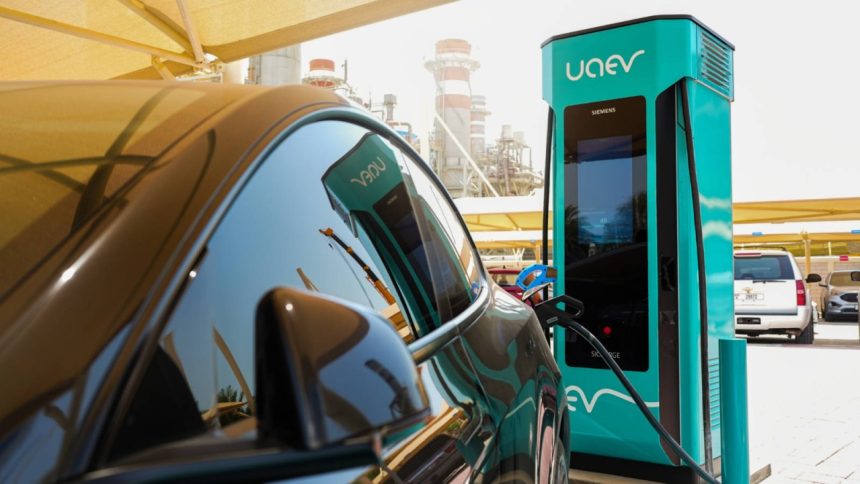The Dubai Electricity and Water Authority (DEWA) has issued its first two licenses for independent electric vehicle (EV) charge point operators to UAEV, a state-backed electric vehicle charging company, and Tesla, the Texas-based EV manufacturer.
These permits are part of DEWA’s newly established regulatory and licensing framework, aimed at developing a robust EV charging network to meet the increasing demand in the city.
Announced during Gitex Global 2024 in Dubai, this initiative supports the emirate’s sustainability goals and its ambition to achieve net-zero carbon emissions by 2050.
Saeed Al Tayer, managing director and CEO of DEWA, noted that the new framework enhances collaboration between the public and private sectors. “It addresses the rising demand for more EV charging stations according to the highest global standards, ensuring we keep pace with the growth of electric vehicles in Dubai and the UAE,” he explained.
The framework is designed to meet current and future EV demands, reduce emissions, and encourage investment in green infrastructure while prioritizing safety and efficiency.
As of December 2023, the number of EVs on Dubai’s roads reached 25,929, a significant increase from 15,100 the previous year. According to a report from PwC, by 2030, EVs are projected to capture more than 15% of the market share for new passenger and light commercial vehicle sales in the UAE, equating to nearly 58,000 vehicles. This share is expected to rise to 25% by 2035, totaling around 110,500 vehicles. Currently, EVs account for just 3% of all vehicles sold in the UAE.
The report highlights a key barrier to widespread EV adoption, known as “range anxiety,” which refers to concerns about the availability of charging points during long journeys. There are nearly 2,000 public charging points across the UAE, according to PwC. The UAE government aims to increase the share of electric and hybrid vehicles to 50% of total vehicles on the roads by 2050.






